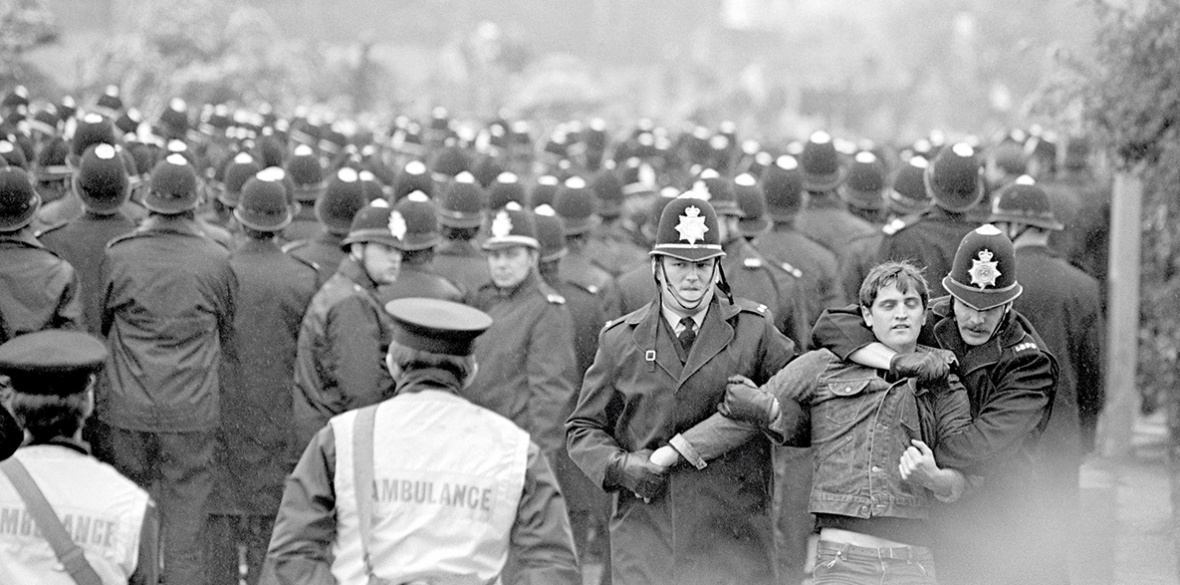This is the last article you can read this month
You can read more article this month
You can read more articles this month
Sorry your limit is up for this month
Reset on:
Please help support the Morning Star by subscribing here
I WELCOME the passing of the Miners’ Strike (Pardons) Bill in the Scottish Parliament to pardon former miners convicted of certain offences during the Miners’ Strike of 1984-85.
This allows a collective and automatic pardon for miners involved in strike action which extends to members of a miner’s household and other close family members who may also have been convicted.
The Miners’ Strike (Pardons) (Scotland) Bill pardons the offences of breach of the peace, obstructing a police officer, breach of bail and theft which occurred during the 1984-85 strike.
The new legislation does not cast any doubt on decisions made by the courts at the time or seek to place blame on any individual or group of individuals.
As someone who represents constituents in the former south Wales coalfield, I am aware of the long shadow of the dispute in the 1980s. The impact is still there to see in many of our communities, and the strike fundamentally shaped people’s opinion of policing. Many working-class families for the first time experienced harsh treatment by the police and justice system.
That is why it is essential that we have a wide-ranging inquiry into what happened across Britain during the strike.
Plaid Cymru Leader Adam Price has summed up his feelings, after his father was out on strike: “The strike represents one of the most important chapters in Wales’s recent history.
“I tend to look at the strike from one perspective — a battle to safeguard employment in the area and defend a way of life and culture which meant so much to me, my family and community.
“For me, it was an inspirational time when Welsh communities defended our way of life against the power of the Tory government.”
You only have to look at what happened to miners at what became known as the Battle of Orgreave in June 1984 to see that there was obviously something wrong with the way the police acted there, but there are wider questions that need to be answered.
The Scottish government recognised the scale of injustice faced by striking miners, conducting an independent inquiry that led to unanimous passing of the Bill last month in the Scottish Parliament.
We in Wales cannot emulate the Scottish response, despite our communities facing the same sort of questions around policing and justice during the miners’ strike. This is because policing and justice still remains in the hands of Priti Patel and Dominic Raab rather than the responsibility of the Welsh government.
Wales is the only nation in the UK without powers over its policing and justice systems. Policing is devolved in Scotland, Northern Ireland and even Manchester — so why not Wales?
Due to the spending cuts by the Westminster government, the Welsh government is contributing almost 40 per cent of the justice spending in Wales, despite justice not being devolved, which is unsustainable.
I have tabled a motion, a statement of opinion welcoming the Scottish review of policing on Scottish communities during the industrial dispute.
My motion calls for the Westminster government to create a UK-wide public inquiry into the strike and to consider a compensation scheme for former miners. I hope the Welsh government will support my calls.
This chimes with what Scottish politicians have said, about the need for a UK-wide inquiry, because the Scottish review led by John Scott QC was unable to consider elements of policy reserved to Westminster including trade union relations or allegations of political interference by the UK government into policing.
There is also the question of a compensation scheme for former miners faced with the injustices during the miners’ strike. While the Scottish government has supported this, they feel their hands are tied because many of these issues are not devolved.
The main argument against an inquiry by the Westminster government is the passage of time between the events in the 1980s and now.
Yet in reality the scars of how the strike was policed still remain. Some scars are visible by those who faced violence on the picket line. Whilst others are not but linger like a distrust in policing and the way justice is administrated.
Until there is an acknowledgement of the wrongs that occurred how can people have faith that policing, and justice powers are being used correctly and wisely?
The passage of time should not be an excuse for not carrying out a proper inquiry. Justice may have been delayed but it should not be denied.
Rhys ab Owen is MS for South Wales Central — Twitter @RhysOwenThomas.









